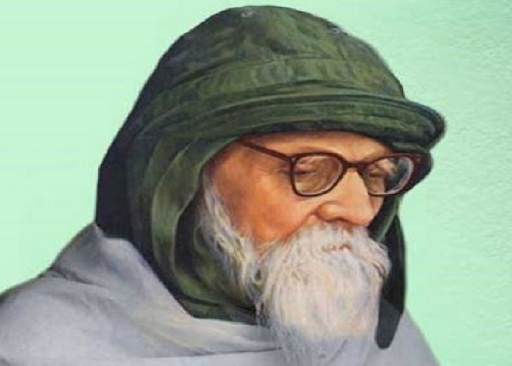Indian History
Acharya Vinoba Bhave
- 13 Sep 2021
- 5 min read
Why in News
Recently, the Prime Minister paid rich tributes to Acharya Vinoba Bhave on his birth Anniversary.
Key Points
- Birth:
- Vinayak Narahari Bhave, born on 11th September 1895, Gagode, Bombay Presidency (now in Maharashtra).
- Eldest son of Narahari Shambhu Rao and Rukmini Devi.
- His mother had a major influence on him. He was inspired by her to read 'The Gita'.
- Brief Profile:
- One of India’s best-known social reformers and a widely venerated disciple of Mohandas K. (Mahatma) Gandhi. Founder of the Bhoodan Yajna (“Land-Gift Movement”).
- Association with Gandhi:
- Attracted towards the principles and ideologies of Mahatma Gandhi and considered Gandhi his guru, from both a political and spiritual point of view.
- Abandoned his high school studies in 1916 to join Gandhi’s ashram (ascetic community) at Sabarmati, near Ahmedabad.
- Gandhi’s teachings led Bhave to a life of austerity dedicated to improving Indian village life.
- Role in Freedom Struggle:
- Took part in programs of non-cooperation and especially the call for use of Swadeshi goods instead of foreign imports.
- In 1940, he was chosen as the first Individual Satyagrahi (an Individual standing up for Truth instead of a collective action) against British Raj by Gandhi in India.
- Bhave was imprisoned several times during the 1920s and ’30s and served a five-year prison sentence in the ’40s for leading nonviolent resistance to British rule. He was given the honorific title acharya (“teacher”).
- Role in Social Work:
- Worked tirelessly towards eradicating social evils like inequality.
- Influenced by the examples set by Gandhi, he took up the cause of people who were referred to as Harijans by Gandhi.
- He adopted the term Sarvodaya from Gandhi which simply means “Progress for All”.
- The Sarvodaya movement under him implemented various programs during the 1950s, the chief among which is the Bhoodan Movement.
- Bhoodan Movement:
- In the year 1951, the Harijans of the Pochampalli village of Telangana requested him to provide them with around 80 acres of land to make a living.
- Vinoba asked the landlords of the village to come forward and save the Harijans. and a landlord got up and offered the required land. This incident added a new chapter in the history of sacrifices and non-violence.
- It was the beginning of the Bhoodan (Gift of the Land) movement.
- The movement continued for thirteen years and Vinoba toured the length and breadth of the country, a total distance of 58741 Km.
- He was successful in collecting around 4.4 million acres of land, of which around 1.3 million was distributed among poor landless farmers.
- The movement attracted admiration from all over the world and was commended for being the only experiment of his kind to incite voluntary social justice.
- Religious Work:
- In 1923, he brought out 'Maharashtra Dharma', a monthly in Marathi, which had his essays on the Upanishads.
- He set up a number of Ashrams to promote a simple way of life, devoid of luxuries that took away one’s focus from the Divine.
- Established the Brahma Vidya Mandir in 1959, a small community for women, aiming at self-sufficiency on the lines of Mahatma Gandhi’s teachings.
- He took a strong stand on cow slaughter and declared to go on fast until it was banned in India.
- Literary Work:
- His important books include: Swarajya Sastra, Geeta Pravachane, Teesri Shakti or The Third Power etc.
- Death:
- Died in 1982, Wardha, Maharashtra.
- Awards:
- Vinoba Bhabe was the first international figure to receive the Ramon Magsaysay Award in 1958. He was awarded Bharat Ratna posthumously in 1983.







